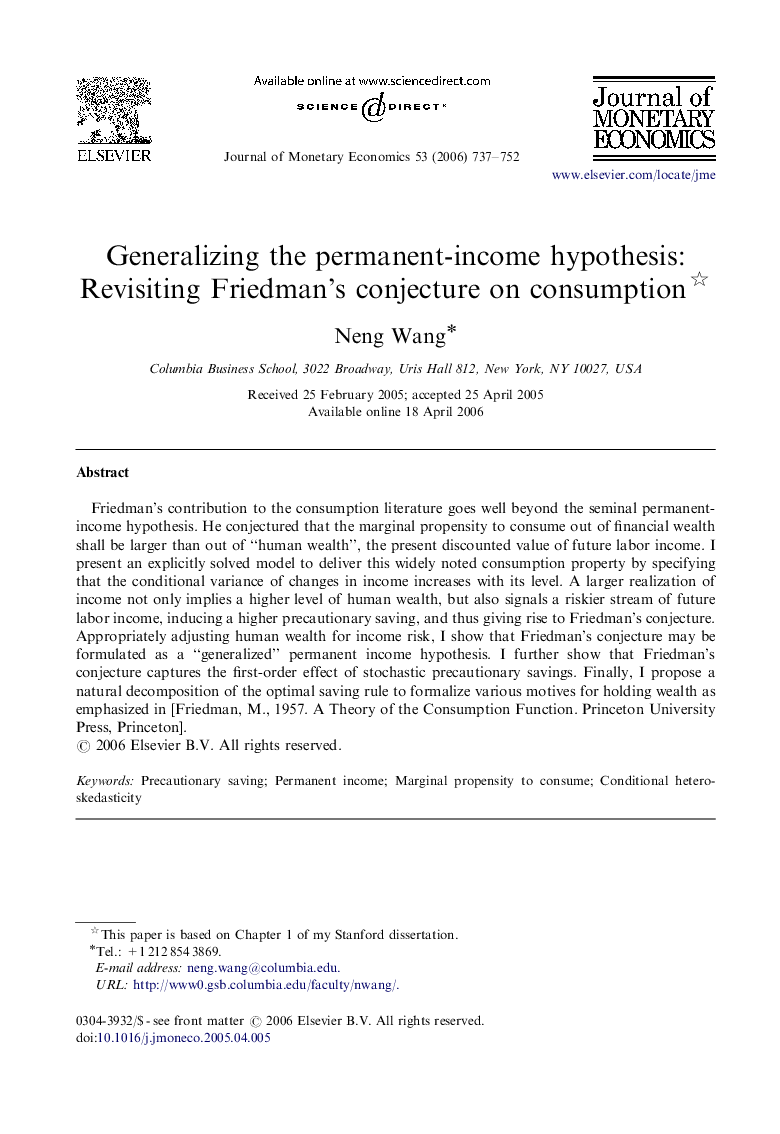| Article ID | Journal | Published Year | Pages | File Type |
|---|---|---|---|---|
| 967645 | Journal of Monetary Economics | 2006 | 16 Pages |
Friedman's contribution to the consumption literature goes well beyond the seminal permanent-income hypothesis. He conjectured that the marginal propensity to consume out of financial wealth shall be larger than out of “human wealth”, the present discounted value of future labor income. I present an explicitly solved model to deliver this widely noted consumption property by specifying that the conditional variance of changes in income increases with its level. A larger realization of income not only implies a higher level of human wealth, but also signals a riskier stream of future labor income, inducing a higher precautionary saving, and thus giving rise to Friedman's conjecture. Appropriately adjusting human wealth for income risk, I show that Friedman's conjecture may be formulated as a “generalized” permanent income hypothesis. I further show that Friedman's conjecture captures the first-order effect of stochastic precautionary savings. Finally, I propose a natural decomposition of the optimal saving rule to formalize various motives for holding wealth as emphasized in [Friedman, M., 1957. A Theory of the Consumption Function. Princeton University Press, Princeton].
